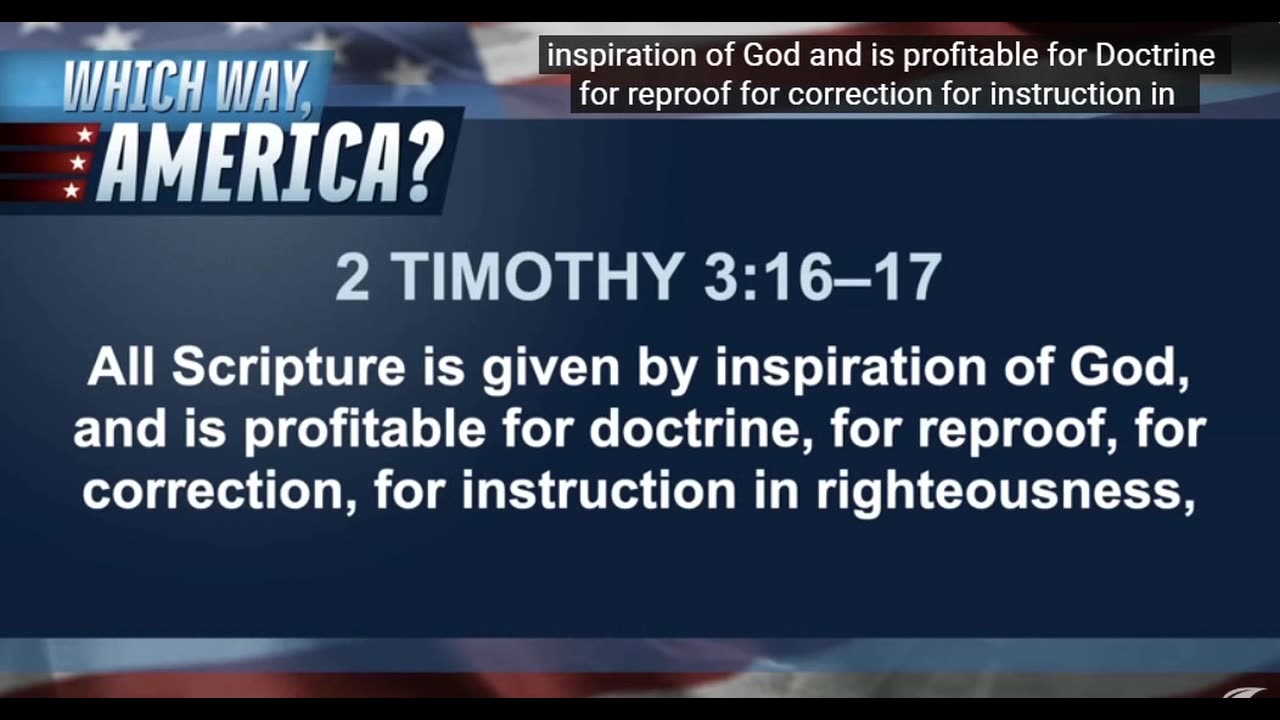Premium Only Content

EXPOSEING THE TWISTED TEACHINGS IN CATHOLICISM
THE ROMAN CHURCH
The teachings of the Roman Catholic Church encompass a wide range of doctrines and beliefs that go beyond the Bible. While scripture holds a central position, the Church also relies on tradition, teachings from Church Fathers, and Magisterial teachings. Here are some key non-biblical teachings and concepts central to Roman Catholicism:
1. Sacred Tradition: The Church teaches that divine revelation is transmitted not only through the Bible but also through Sacred Tradition. This includes teachings, practices, and beliefs that have been passed down through generations.
2. The Role of the Magisterium: The Church's Magisterium, composed of the Pope and the bishops, is the authoritative teaching body. It interprets both Scripture and Tradition and is believed to be guided by the Holy Spirit.
3. The Seven Sacraments: The Church recognizes seven sacraments (Baptism, Confirmation, Eucharist, Penance, Anointing of the Sick, Holy Orders, and Matrimony) as means of grace. Their significance and rituals are derived from Church tradition and teaching rather than direct scriptural references.
4. The Doctrine of Purgatory: This teaching posits that there is a state after death where souls are purified before entering heaven. The concept is supported by tradition and theological interpretation rather than explicit biblical texts.
5. Mary's Role: The veneration of Mary, including beliefs in her Immaculate Conception and Assumption, is rooted in tradition. These doctrines affirm her unique role in salvation history and her intercessory power.
6. The Communion of Saints: The Church teaches that all members of the Church (living and dead) are connected and that the faithful can intercede for one another. This belief is based on the tradition of the early Church.
7. Transubstantiation: The Catholic doctrine that, during the Eucharist, the bread and wine become the actual body and blood of Christ is more philosophical and theological in nature, based on Church teaching rather than a simple biblical account.
8. Social Teachings: The Church's social doctrine, which addresses issues like poverty, justice, and human rights, is developed through the application of Catholic principles to contemporary situations, emphasizing moral teachings alongside the Gospel.
1. Papal Authority: The Catholic Church teaches that the Pope has supreme authority over the Church. This belief in papal infallibility and authority is based on tradition rather than direct biblical text.
2. Transubstantiation: The doctrine of transubstantiation, which describes the bread and wine becoming the actual body and blood of Christ during the Eucharist, is not directly stated in the Bible but is derived from church tradition and theological interpretations.
3. Veneration of Saints: The practice of praying to saints or seeking their intercession is common in many Christian traditions but lacks explicit biblical endorsement.
4. Original Sin: The doctrine of original sin, particularly as articulated by Augustine and adopted by the Western Church, is based on theological interpretation rather than a specific biblical passage.
5. The Trinity: While the concept of the Trinity (Father, Son, Holy Spirit) is widely accepted, the term itself and a comprehensive explanation are not found verbatim in the Bible; rather, it is derived from interpretations of various scripture passages.
These teachings often reflect the evolution of church doctrine and the authority of church leadership in interpreting the scriptures. Different denominations may emphasize various traditions and teachings based on their theological perspectives
-
 LIVE
LIVE
IsaiahLCarter
6 hours agoCharlie Kirk, American Martyr (with Mikale Olson) || APOSTATE RADIO 028
196 watching -
 16:43
16:43
Mrgunsngear
9 hours ago $0.80 earnedKimber 2K11 Pro Review 🇺🇸
2.77K9 -
 13:40
13:40
Michael Button
1 day ago $0.17 earnedThe Strangest Theory of Human Evolution
4484 -
 10:19
10:19
Blackstone Griddles
1 day agoMahi-Mahi Fish Tacos on the Blackstone Griddle
8711 -
 23:51
23:51
Jasmin Laine
1 day ago“Stop Wasting My Time!”—Trump's BRUTAL WARNING To Canada As Poilievre ROASTS CBC LIVE
1.74K15 -
 9:54
9:54
Millionaire Mentor
1 day agoNBC Host EXPOSES JB Pritzker For Saying This About Trump
2173 -
 1:35:39
1:35:39
SB Mowing
2 days agoIt took the WHOLE NEIGHBORHOOD to uncover this yards SHOCKING SECRET
73.3K60 -
 12:52
12:52
ROSE UNPLUGGED
22 hours agoFrom Vision to Legacy: Charlie Kirk
45.8K19 -
 1:14:22
1:14:22
Jeff Ahern
6 hours ago $10.58 earnedThe Sunday Show with Jeff Ahern
70.8K28 -
 16:37
16:37
Professor Nez
7 hours ago🚨Internet MELTS DOWN over JD Vance & Trump BREAKING the Democrats!
64.8K181